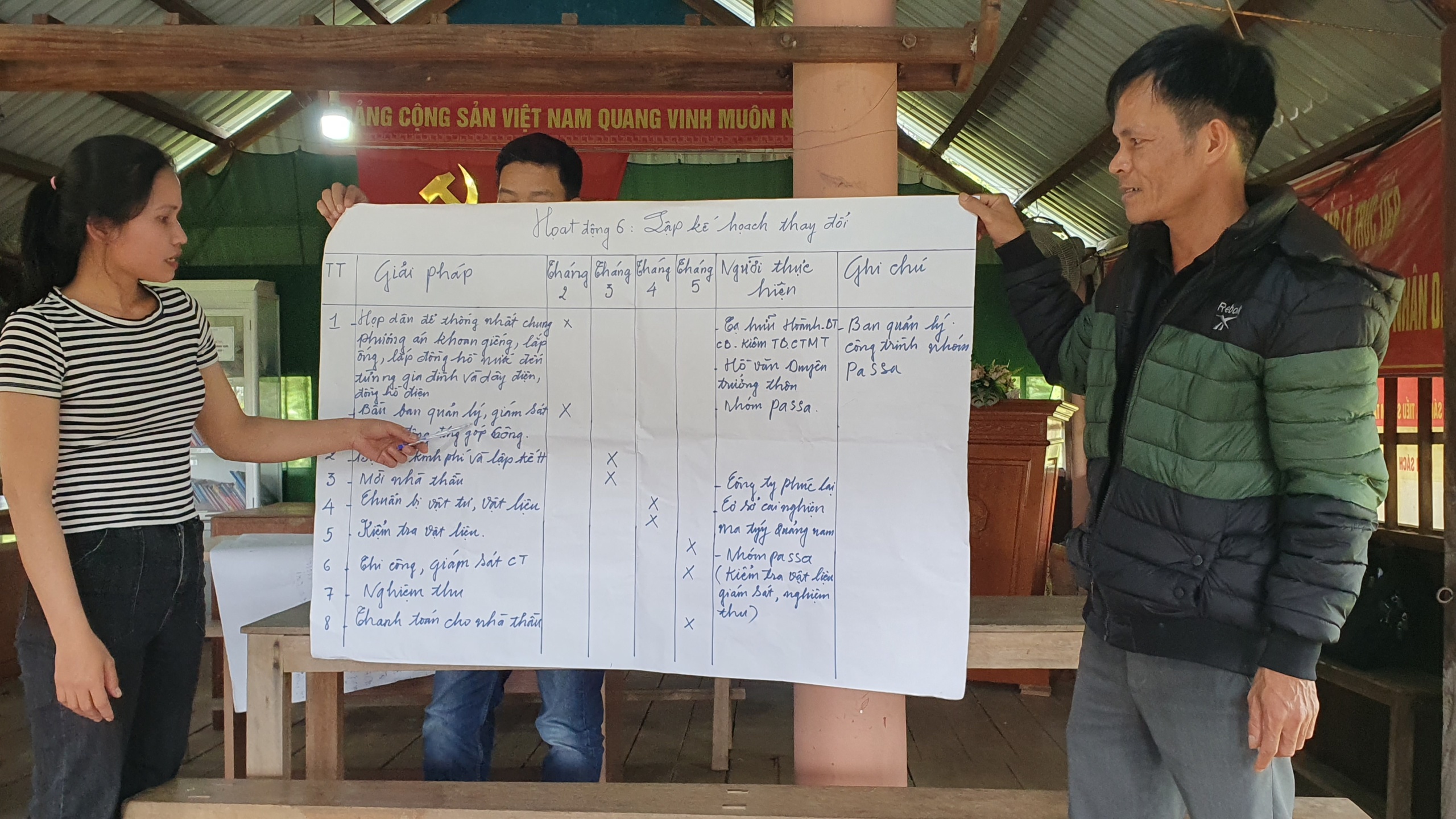Ms Hong lives in the Song Tra Commune, Hiep Duc district in Central Vietnam, she is one of many residents who goes without access to water from June to August every year when the nearby open wells dry up due to the heat.
Accessing water in the dry season means residents such as Ms Hong must buy drinking water, whilst bathing and washing clothes in the local, polluted stream. Accessing bottled water is expensive and using stream water for other purposes is dangerous, with Ms Hong contracting various skin diseases as a result.
In 2022, the Participatory Approach for Safe Shelter and Settlements Awareness (PASSA) was introduced to the district under a DFAT funded project. The PASSA approach to construction combines community-led initiative and collaboration with different stakeholders, including the government, to address disaster resilience. Twenty members, representing three settlements in the region from a range of demographics, came together and participated in identifying their communities’ vulnerabilities to disaster. They also outlined their priorities to act and discussed both solutions and resource mobilisation so that they could implement efforts to improve their communities’ resilience.
Members of the PASSA group decided to invest the granted amount of VND 230,000,000, equivalent to approximately $15,000AUD (VND 180,000,000 from the project and VND 50,000,000 from the local government) and build a centralised water system to provide quality water for twenty ethnic households in Tra Va Village, including Ms Hong’s.
The water system was completed in June 2023 and includes a tank with capacity for 2000 litres, a water pile system connecting the tank to each home, and a water meter installed for each family.
“By using safe water sources from this system, our communities will not face water shortages in the dry season anymore, and it can also help us to be less exposed to the health risks due to using unsafe water sources.” – Ms Wong.
Through implementing the water system led by the PASSA group, we have observed that community members have become more active in identifying their vulnerabilities and are more proactive in planning and implementing action to improve resilience. For example, they are more mindful of their water use as they can measure ongoing costs through their individual water meters. Investment becomes more sustainable when community members take ownership of the initiative.


